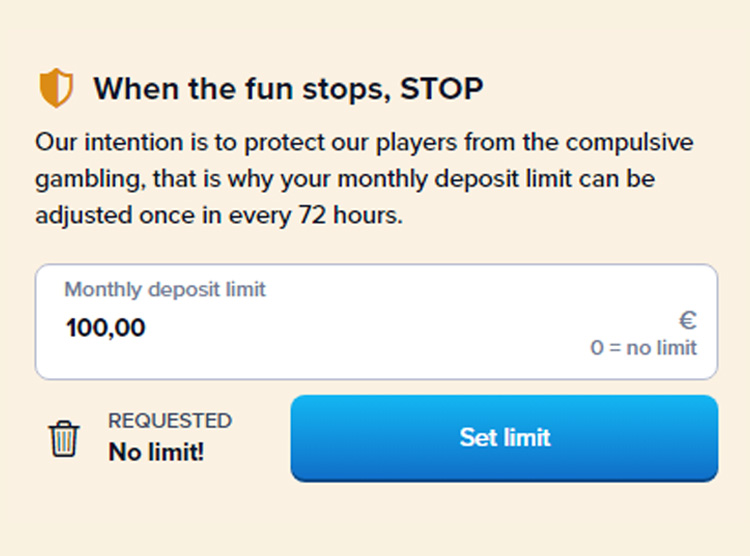
11 tips for conscious and safe betting
In the world of sports betting, safety is of crucial importance. Betting should be a fun and responsible activity that brings excitement, but at the same time requires awareness of risks and a proper approach.
In this text, we will cover several key tips for safe betting to protect yourself from potential negative consequences. Whether you are a beginner or an experienced bettor, these tips will help you enjoy betting in a responsible manner, safeguarding your finances and emotional well-being.

1. Set a budget limit
A crucial tip for safe betting is to set a limit for your budget. Determine how much money you are willing to allocate for betting and stick to that limit. It is important that betting does not affect your financial stability.
Setting budget limits helps you remain responsible and protect yourself from excessive betting. Remember, betting should be a fun activity, and setting a budget limit helps you enjoy it in a responsible way.
 You can set the limit under Account > General
You can set the limit under Account > General
2. Don't view betting as a regular source of income
Betting should be viewed as a form of entertainment and recreation, not as a regular source of income. By betting with the intention of regularly making money, you enter a very risky territory. Sports betting is a game of chance, where outcomes are unpredictable.
Instead of relying on betting as a source of income, the focus should be on enjoying the process and having realistic expectations. Be aware that betting carries risks and do not depend on it as a regular source of income.

3. Don't chase your losses
When you experience a loss in betting, it is important not to engage in impulsive behavior and chase after recovering the losses. This is called "chasing losses" and can lead to even greater losses. Instead, be patient and analytical.
Review your betting strategy, analyze information, and make rational decisions. Emotional reactions to losses can lead to unnecessary risks and bigger losses. Stay calm, stick to your plan, and don't chase after recovering losses.

4. Don't mix betting with substance abuse
It is important that gambling does not become similar to addiction or intoxication. Gambling should be a controlled and conscious activity, not a way to avoid or suppress emotional or life problems. Using gambling as an escape from reality can lead to serious financial and emotional consequences. Instead, approach gambling with a healthy mindset, as a fun experience that can bring excitement, but still maintain boundaries and balance in your life.

5. Manage your emotional state
Emotions can have a strong influence on the decisions you make in betting. It is important to monitor yourself and manage your emotional state while making bets. When you are angry, frustrated, or overly excited, you may make impulsive decisions that are not based on rational thinking. Engage in betting when you are calm and focused. If you notice that emotions are affecting your decisions, take a step back, take a break, and return when you are calmer. Emotional control is key to making informed and rational decisions in betting.

6. Don't borrow money for betting
When it comes to betting, it is important to use only the funds you are willing to lose. Never borrow money or use funds intended for basic needs to finance your betting. Betting carries risks, and borrowing money for betting can lead to financial difficulties and problems. Set limits for yourself and be disciplined regarding your finances. Betting should be a fun activity that you can afford, not a burden that creates additional stress and problems.

7. Set time limits
When engaging in betting, it is important to set time limits that you will dedicate to this activity. Betting can be very engaging and exciting, but excessive time spent on betting can lead to negative consequences.
Define how much time per day or per week you want to dedicate to betting and stick to that limit. This will help you maintain a balance between betting and other obligations in your life, as well as avoid excessive betting that can affect your finances and emotional well-being.

8. Beware of scams on social media.
In the world of sports betting, where billions of dollars are at stake, it is sad that scams have become prevalent. From selling "tips" on Instagram to selling fixed matches, scams are a serious problem that affects the integrity and trust in the industry.
In future articles, we will write about these types of scams and their impact on the betting community.

9. Don't lose touch with the real world because of gambling.
Gambling can be an exciting activity, but it's important not to lose touch with reality and perspective. Don't let gambling become an obsession that takes away your time and attention from other aspects of life. Maintain balance and keep in mind other important commitments, relationships, and interests. Your well-being and happiness should not depend solely on the outcome of gambling. Gambling should be a part of your life but not the sole focus.
10. What are the symptoms of sports betting addiction
Symptoms of sports betting addiction may include:
- Constant need to gamble: A person addicted to sports betting feels a constant need to gamble. Gambling becomes a dominant thought, and it's difficult to resist.
- Loss of control over gambling: An addicted person loses control over their gambling. Regardless of losses or negative consequences, they cannot stop gambling and continue to risk their money.
- Neglecting other responsibilities due to gambling: A gambling addict may neglect their other obligations and responsibilities to dedicate themselves to gambling. This may include missing work, family events, or social activities.
- Financial problems: Gambling addiction can lead to serious financial problems. A person may wager more money than they can afford and accumulate debts or financial crises.
- Mood swings: Gambling can cause significant mood swings in addicted individuals. After wins, they feel excitement and euphoria, while after losses, they experience depression, sadness, or despair.
- Anxiety: An addicted person may experience intense anxiety and stress when they cannot gamble or when faced with losses. Gambling becomes a means of avoiding unpleasant emotions, but at the same time, it causes additional anxiety.
- If you notice these symptoms in yourself or someone you know, it is important to seek help from professionals who specialize in supporting and treating gambling problems. It is never too late to take steps towards recovery and regaining control over your own life.
11. When is the time to seek help?
If you feel that gambling is becoming problematic and you're losing control over yourself, it's important to seek help. Professionals who specialize in treating gambling problems can provide you with necessary assistance, support, and strategies to overcome addiction. Don't hesitate to reach out to an expert if you feel that gambling is negatively affecting your life. Seeking help is a brave step towards regaining control over your own life and well-being.
